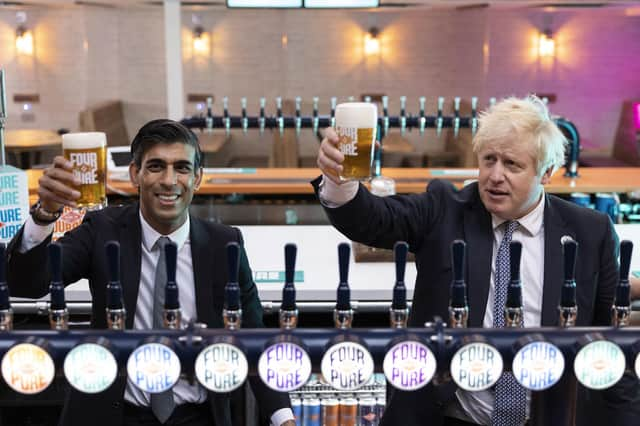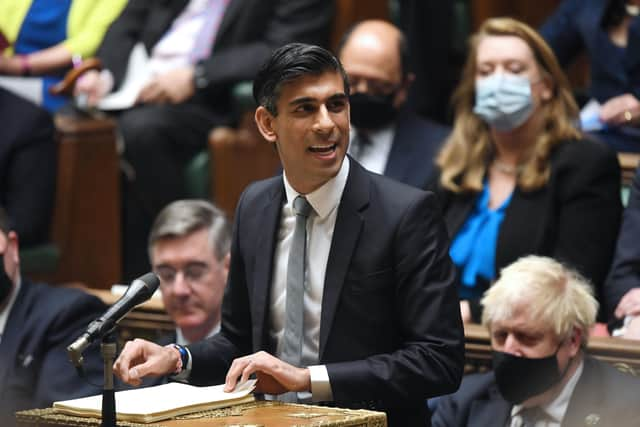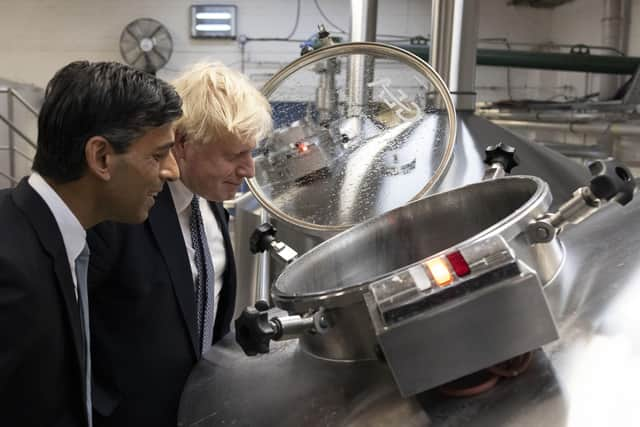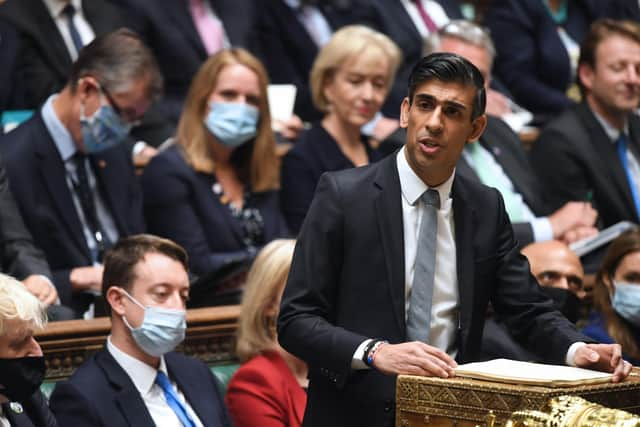Why Rishi Sunak’s Budget sums don’t add up – Bill Carmichael


Let’s face it – if this week’s Budget had been delivered by a Labour Chancellor, no one would have batted an eyelid.
It is about as far from small government, low taxation conservatism as it is possible to imagine.
Advertisement
Hide AdAdvertisement
Hide AdThe response from Labour was telling. They struggled to find anything to actually disagree with and generally settled on the same lame response: “But it is not enough!” How much would be enough? They’ll tell us when we get there.


This Budget represents quite clearly one of the biggest changes in political philosophy by the Conservative Party that we have seen in modern times, driven by big spending Prime Minister Boris Johnson and his Chancellor Rishi Sunak.
Advertisement
Hide AdAdvertisement
Hide AdLike a svelte nightclub crooner, Yorkshire’s ‘Dishy Rishi’ is now belting out all the old hits from the Tony Blair/Gordon Brown songbook, and reversing many of the Cameroonian policies of the last ten years.


There’s more money for local government, oodles of cash for Whitehall departments and even funding for “family hubs” which sound remarkably similar to Labour’s Sure Start schemes, and which were ditched by David Cameron.
As a result the state will grow to its largest since the 1970s, taxes are rocketing to pay for it all and the national debt has topped £2 trillion.
Even Mr Sunak himself admitted in his Budget speech to the House of Commons: “Taxes are rising to their highest level as a percentage of GDP since the 1950s – I don’t like it, but I cannot apologise for it – it’s the result of the unprecedented crisis.”
Advertisement
Hide AdAdvertisement
Hide AdIn other words the Covid pandemic has presented a big opportunity for the state to make a power grab – and don’t expect that to be reversed any time soon, regardless of what happens with Covid.


Don’t get me wrong, there were some excellent ideas in this week’s Budget as you would expect from a Chancellor as astute as the Richmond MP.
Best of all was the announcement of a reduction in the taper rate for Universal Credit. This sounds quite a dry, technical move, but it will make a massive difference to the working poor. Basically it means that those in poorly paid jobs will lose less of their Universal Credit benefit if they earn more in wages.
It amounts to a big incentive to work, and as we know the only reliable way out of poverty is through work and self-reliance, not from state hand-outs.
Advertisement
Hide AdAdvertisement
Hide AdI was about to give three cheers for this initiative, but they died in my throat when I realised that much of this increase will be wiped out by the already-announced increases in National Insurance, rising inflation and higher gas bills, thanks to our “green” energy policy.
What seems to have been junked by the modern Conservative party is the idea – backed up by hard empirical evidence – that low taxes lead to higher growth, more investment, more jobs, more taxes paid and more money for the government to spend on the services we all value.
In contrast we know from experience that high taxes depress growth and cut employment.
The Chancellor says he wants a high investment, high productivity economy – but then clobbers businesses with Corporation Tax increases, which will reduce investment.
Advertisement
Hide AdAdvertisement
Hide AdHe says he wants to help the less well off and make work pay – but then clobbers the low paid with National Insurance rises.
In his Budget speech Mr Sunak had the brass neck to argue it was time for the Conservatives to start making the moral case for lower taxes and a smaller state, but I am afraid this rhetoric doesn’t reflect the reality of his actual policies.
He did add: “By the end of this Parliament, I want taxes to be going down, not up.”
That’s a big hint as to the date of the next general election, but until we see taxes actually reduced, Boris Johnson and Rishi Sunak will go down as two of the biggest spenders in modern British history.
Advertisement
Hide AdAdvertisement
Hide AdSupport The Yorkshire Post and become a subscriber today. Your subscription will help us to continue to bring quality news to the people of Yorkshire. In return, you’ll see fewer ads on site, get free access to our app, receive exclusive members-only offers and access to all premium content and columns. Click here to subscribe.
Comment Guidelines
National World encourages reader discussion on our stories. User feedback, insights and back-and-forth exchanges add a rich layer of context to reporting. Please review our Community Guidelines before commenting.